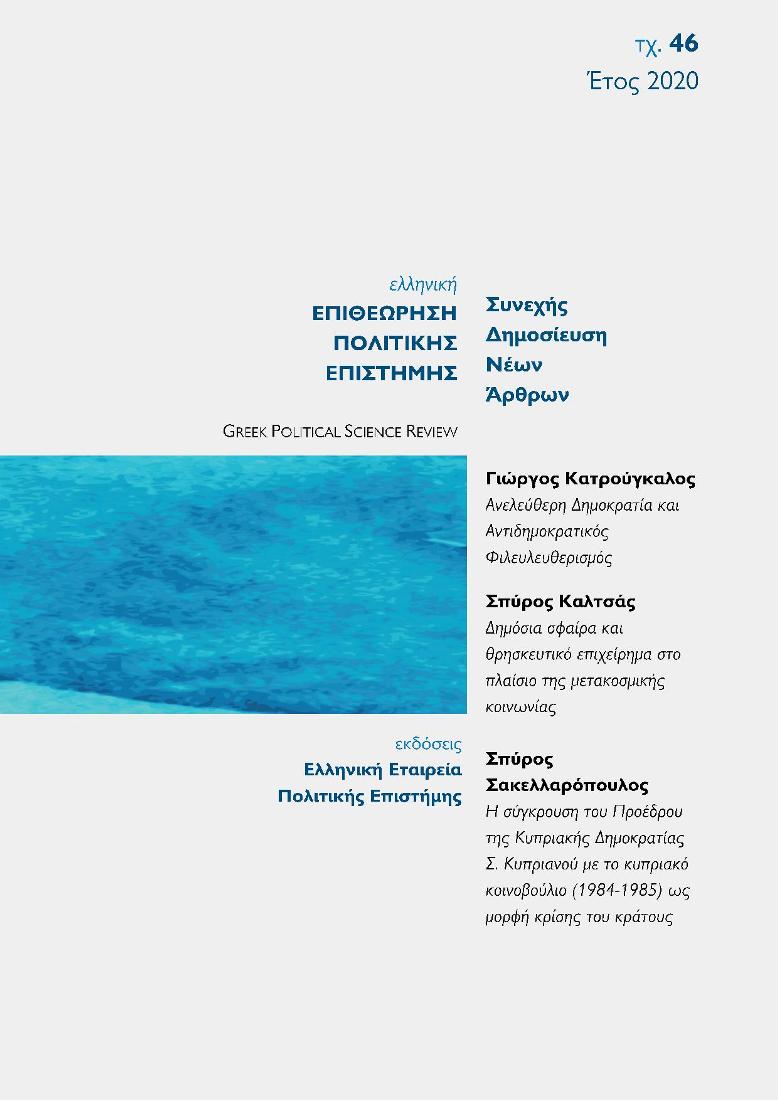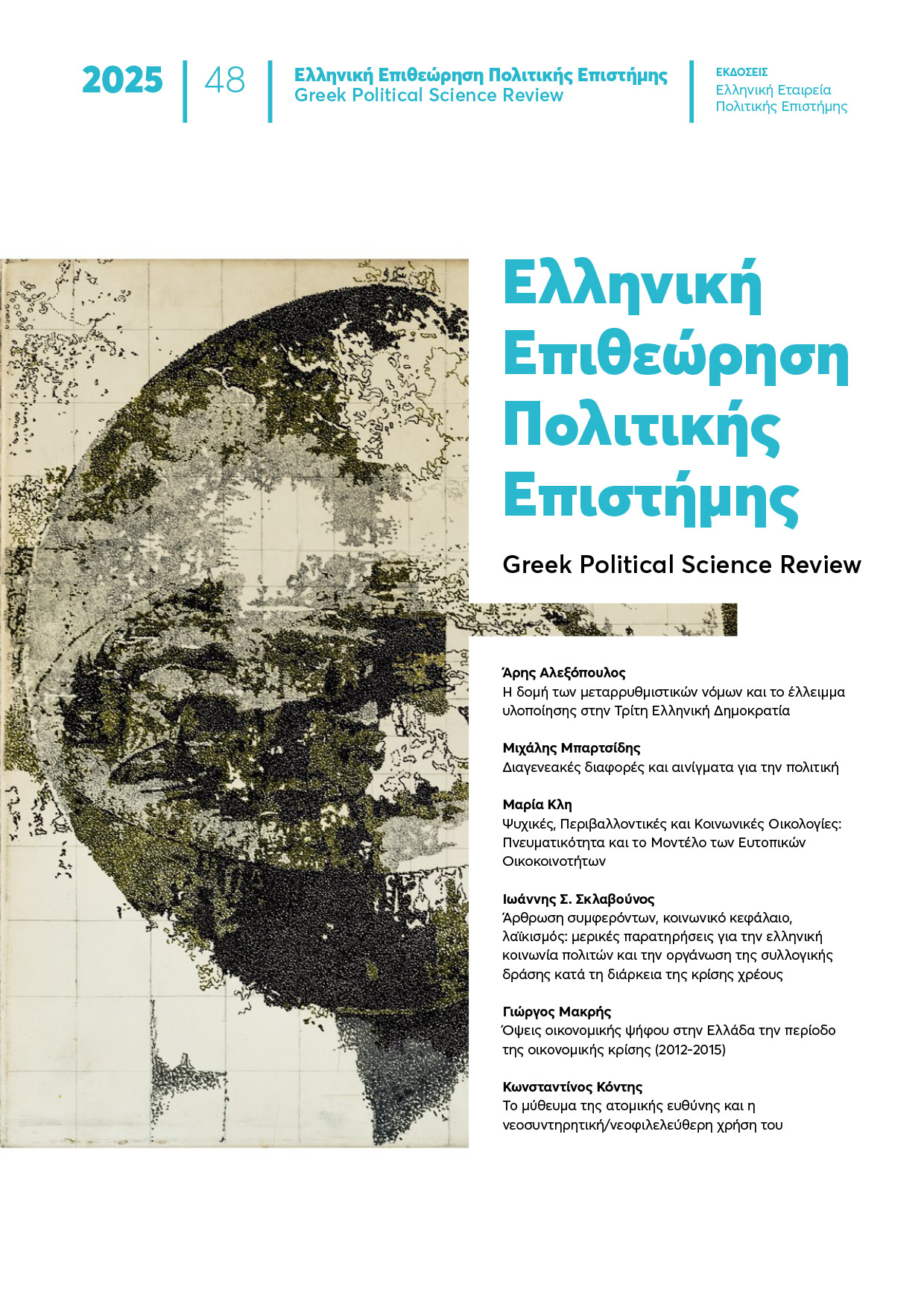"Neo-oligarchic" politics? Citizenship, parties and democracy in an era of transition

Abstract
The scope of this article is a historical understanding of the conception of politics in the framework of modern western democracies through the examination of some key elements that define its shape. Drawing mainly upon the work of T. H. Marshall, C. Offe, P. Mair and N. Mouzelis, emphasis is placed on the historical evolution of citizenship based on the three types of rights that constitute it (civil, political and social), the reconciliation between capitalism and political democracy, the organizational development of political parties and their relationship with the state and the civil society, the incorporation of masses into politics and finally the type of democracy which depends on the above-mentioned variables. It is argued that, following and expanding Mouzelis' scheme about "oligarchic" and "post-oligarchic politics", contemporary western democracies are characterized by "neo-oligarchic politics".
Article Details
- How to Cite
-
Σκλαβούνος Ι. Σ. (2020). "Neo-oligarchic" politics? Citizenship, parties and democracy in an era of transition. Greek Political Science Review, 46, 83–123. https://doi.org/10.12681/hpsa.24492
- Issue
- Vol. 46 (2020)
- Section
- Articles

This work is licensed under a Creative Commons Attribution-NonCommercial-ShareAlike 4.0 International License.
Authors who publish with this journal agree to the following terms:
Authors retain copyright and grant the journal right of first publication with the work simultaneously licensed under a Creative Commons Attribution licence that allows others to share the work with an acknowledgement of the work's authorship and initial publication in this journal.
Authors are able to enter into separate, additional contractual arrangements for the non-exclusive distribution of the journal's published version of the work (e.g. post it to an institutional repository or publish it in a book), with an acknowledgement of its initial publication in this journal.
Authors are permitted and encouraged to post their work online (preferably in institutional repositories or on their website) prior to and during the submission process, as it can lead to productive exchanges, as well as earlier and greater citation of published work (See The Effect of Open Access).



